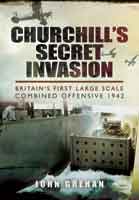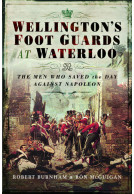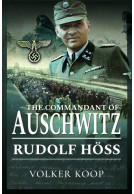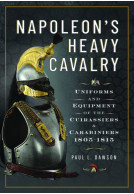Hitler’s Wolfsschanze (ePub)
The Wolf’s Lair Headquarters on the Eastern Front – An Illustrated Guide

File Size: 65.5 MB (.epub)
Illustrations: 280 colour illustrations
ISBN: 9781526753120
Published: 7th July 2021
| Other formats available - Buy the Hardback and get the eBook for £1.99! | Price |
|---|---|
| Hitler’s Wolfsschanze Hardback Add to Basket | £25.00 |
Set deep in the heart of the Masurian woods of northern Poland, in what was formally East Prussia, lies a vast complex of ruined bunkers and shelters that once constituted Hitler’s headquarters – the Wolfsschanze or Wolf’s Lair – for Germany’s attack upon the Soviet Union in 1941.
Built in conditions of the utmost secrecy, the Wolfsschanze was surrounded by fences and guard posts, its paths and tracks were hidden, and buildings were camouflaged and concealed with artificial grass and trees planted on their flat roofs. As the war in Eastern Europe continued, so the Wolf’s Lair grew in scale and sophistication, until it’s 2.5 square miles incorporated more than eighty buildings including massive reinforced bunkers. It was also at the Wolfsschanze that Colonel von Stauffenberg almost killed Hitler in the summer of 1944. That building is still there, its roof sitting on its collapsed walls.
With the aid of a unique collection of colour photographs, the reader is guided around the Wolfsschanze as it appears today, with each building and its purpose identified. Laced with numerous personal accounts of the installation and of Hitler’s routines, supplemented with contemporary images, the Wolfsschanze is brought to life once more.
The Wolfsschanze, however, was not the only military complex in this small part of the Eastern Front. Once Hitler has established his command centre at the Wolfsschanze, in effect the home of the Oberkommando der Wehrmacht (or military high command), the other branches of the German armed forces and civil authorities quickly followed suit. Just a few miles away, for example, the German Army built its own operational headquarters at Mauerwald – a complex which amounted to an even greater concentration of buildings, many of which remain intact and open to the public. Göring duly ordered that the Luftwaffe’s headquarters, codenamed Robinson, be built further out near the current Russian border, whilst Himmler’s SS headquarters at Hochwald and that for Hans Lammers’ Reich Chancellery were situated back nearer the Wolfsschanze.
For the first time, these astonishing sites, five complexes from which the war on the Eastern Front was directed, are shown and described in one book, providing a comprehensive survey of the installations whose gigantic scale still evinces awe and wonder.
HistoryBookChat
Featured on WW2 Today
WW2 Today
The Wolfsschanze or Wolf's Lair is perhaps the most famous of Hitler's numerous headquarters, as it was here in July 1944 that he narrowly escaped being killed by Colonel von Stauffenberg's bomb. Hidden in the woodland of northern Poland, its elaborate construction began in late 1940 in advance of Germany's attack on the Soviet Union, and by the time of its abandonment in October 1944 it had grown to accommodate more than 80 buildings across an area of 2.5 square miles. This lavishly illustrated book describes its history and naturally devotes a chapter to the assassination attempt, but it is above all a photographic guide and includes many superb images from the time and a vast wealth of colour photographs showing the remains of the site today. It also includes several chapters describing the other headquarters established nearby, including the Mauerwald headquarters of the German High Command, the Hochwald headquarters of the SS, and the Luftwaffe headquarters at Robinson, and the Werwolf headquarters in Ukraine; Hitler's most easterly outpost.
Pegasus Archive
Read the full review here
As featured in
Iron Cross
In summary I would commend this book - not only to those who intend to visit the Wolfsschanze but also to anyone who has an interest in it. Aside from the extremely well-sourced text, the reader can get a very strong impression of what the various sites are like (and were like) from the extensive collection of superbly reproduced photographs. Recommended.
Phil Curme
Read the full review here
"John Grehan’s book not only details in words, maps, and photos, the layouts and appearances of the Lair buildings, but also intimate stories of their daily use by Stauffenberg’s assassination team’s attempt on July 20, 1944."
ARGunners.com
Book review highlight: '...lavishly illustrated with pictures and text describing the remaining structures that are seen today... I thoroughly enjoyed this book and found it to be very informative.'
The Army Rumour Service (ARRSE)
Full review available at: https://www.arrse.co.uk/community/reviews/hitlers-wolfsschanze-an-illustrated-history.1687/
It is absolutely amazing how much work was done in excavating tunnels and bunkers for the German war effort - installations intended for the launch of Hitler's onslaught against Russia etc. A brilliant book.
Books Monthly
I thoroughly enjoyed this book and found it to be very informative... There is an extensive notes and bibliography at the end of the book.
ARRSE (Army Rumour Service)
Read the full review here
These Headquarters are infamous, and this excellent book will guide any visitor or “armchair” visitor to the sites. It gives a very good indication as to what one can expect if you travel to Poland and after enjoying reading this volume one cannot be unimpressed as to the scale of these complexes. The author has produced a superb guide and it would be brilliant if one could go the locations using his work as a “tour guide”.
Dr Stuart C Blank, Military Archive Research
A very useful insight into how Hitler lived for much of the war with some fascinating details.
WW2 Today
Read the full review here
The book is divided up into 9 chapters, starting with the main coverage of Fuhrerhauptquartiere Wolfschanze itself, and Inside the Lair of the Wolf. It describes the site is excellent detail, not only how it evolved but the various buildings and what they were used for, and what life was like for those who worked there.
Military Model Scene
Read the full review here
About John Grehan
JOHN GREHAN has written, edited or contributed to more than 300 books and magazine articles covering a wide span of military history from the Iron Age to the recent conflict in Afghanistan. John has also appeared on local and national radio and television to advise on military history topics. He was employed as the Assistant Editor of Britain at War Magazine from its inception until 2014. John now devotes his time to writing and editing books.




















